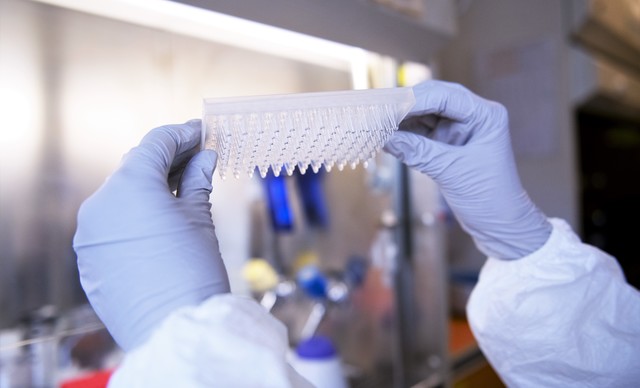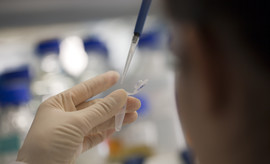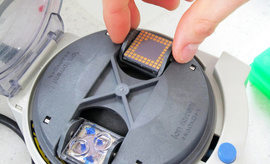Translational research & Clinical studies

Through assessment and validation of diagnostic, prognostic and patient support tools, as well as development of biomedical devices or therapeutic approaches, Institut Curie teams have outstanding qualifications and state-of-the-art methodologies to facilitate the conduct of high quality research to benefit the patients.
Translational research
Since 2003, Institut Curie has structured a Department of Translational Research with the goal of promoting and facilitating translational research..
This department provides clinicians and researchers with human and technological resources enabling the development of application-oriented projects, with the objective of improving care for cancer patients (assessment and validation of diagnostic, prognostic and patient support tools, as well as development of biomedical devices or therapeutic approaches resulting from basic research).
A diverse range of projects is carried with the help of the department: internal projects involving clinicians and researchers from the Institute, but also collaborative projects with other academic institutions or pharmaceutical/biotech companies. Some projects may also aim at providing expertise to the pharmaceutical and biotech industries or at creating “Proofs of concept” for license and/or start-up companies.
The expertise displayed by the teams and the platforms of the Department of Translational Research allows the support for maturation of translational research projects (proof of concept in vivo, target/biomarker identification and validation, ancillary biological studies coupled to clinical trials, …) of the Institut Curie alone or in collaboration with other academic teams or industrial partners.
Clinical research
Clinical development has always been a major activity for Institut Curie:
- More than 10% of all Institut Curie patients are included in a clinical trial. In 2015, a total of 1,440 Institut Curie patients participated in clinical trials.
- Each year, almost 200 multiple large-scale trials are underway, 40 are Phase 1 studies.
- The priority is the early development of new treatments for all types of cancer (Breast, Prostate, Ovary, Ocular, Pediatric…).
To support this end, Institut Curie relies on innovative approaches and methods for analyzing clinical data.
For all clinical development led by Institut Curie, the teams:
- Initiate and evaluate strategies to reduce the side effects of treatments, to spare healthy tissue and to preserve organs whenever possible.
- Tailor treatments to the characteristics of each tumor and each patient.
- Identify new pharmacologic targets, develop and evaluate targeted drugs.
- Develop research on the quality of life and supportive care.
Ancillary studies to clinical trials
Ancillary studies use the valuable clinical data, specimens, and assay results collected during a primary clinical trial and allow to leverage the high-value data collected to answer additional, highly pressing questions and augment this data with additional measurements. They might identify the characteristics of individual immune responses that contribute to failure or success, elucidate mechanisms of treatment response, or identify biomarkers associated with positive outcomes.
Ancillary studies provide these benefits in a cost-effective manner because the bulk of study data has already been collected and, typically, the primary study has already shown a result worthy of further investigation.
We encourage partners to consider ancillary studies to ongoing clinical trials.


